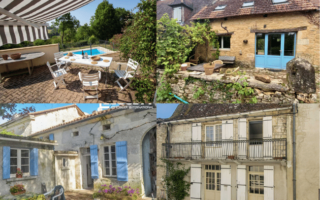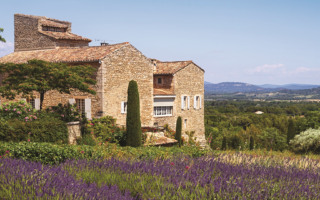Better safe than sorry
If you have a swimming pool at your French home, it must comply with all the regulations. Mary Hall runs through the small print
Children are fascinated by water but in just three minutes an unsupervised tot can drown. With this in mind, the French authorities have stringent regulations surrounding pool safety. So with summer coming and the pool season just around the corner, here’s a round-up of key safety, hygiene and legal issues affecting pool owners in France.
Pool security law
In 2003, the loi Raffarin introduced the requirement for all in-ground outdoor pools in private homes, rented holiday homes and B&Bs to be equipped with an approved safety system. You might not like the law and you can argue its effectiveness until the cows come home but like the compulsory wearing of seat-belts and no-smoking bans it’s here to stay and there’s no opting-out.
You can choose between alarms, shelters, covers and fences – whatever suits your pool and your budget – so long as it complies with either the current normes or with those that were in place when you bought the property. Thus if you have one of the older alarms that are no longer sold, and it still functions correctly and you leave it on permanently, you are complying with the law.
If you’re having a new pool built, the installer has a duty to advise you of the law, and he’ll propose a suitable means of security. You are not bound to accept his offer, however. You can choose something else but you must comply and if you need to replace the safety system on your existing pool it pays to shop around.
The cheapest option has always been the immersion alarm or d�tecteur de chute. Prices have dropped significantly since 2005 and now start at around €300. The devices sit neatly on the edge of the pool and detect movement in the water. They are often the security solution of choice where a pool is sited in view of historic buildings.
However these alarms don’t work in every pool, are not always compatible with thermal covers and, in particular, are prone to going off whenever there’s a strong wind.
When buying, check the product suits the configuration of your pool and that it complies with NF P90-307 A1.
Infrarouge perimeter alarms which detect movement around the pool are notoriously difficult to regulate – for example birds flying past can set some off – and they are useless if you have pets wandering about.
At the other end of the scale in terms of budget are pool shelters: large greenhouse-like contraptions with sliding, concertina or gull-wing doors that must always be kept closed unless the pool is in use. You can see a typical range at www.abrisud.com. They are visually intrusive and won’t suit every setting.
When it comes to covers, the basic choice is between the cheaper reinforced plastic versions, couvertures de s�curit�, floating roller covers, which cost a bit more, and then posh roller shutters, volets roulants, which can look rather neat when built into the pool structure. Remember when choosing a cover that if you comply with the law and pull the cover on every time you finish bathing, you’re going to spend a lot of time looking at it and it might not be a pretty sight.
Also check the means of operation; can one person manage on their own if it’s not an electric cover? If it has little hooks at the end furthest away from the roller, make sure you attach these every time, or the pool isn’t secured.
Pool fencing, with a double-locking gate that complies with the normes, is arguably the best and safest solution, and there are plenty of styles to choose from, see (www.twenga.fr/dir-Jardin-et-Bricolage,Piscine-et-accessoires,Barriere-de-securite-piscine).
The fence is only any good if you keep the gate closed and an eye on the kids. Sadly there were several cases of infants drowning in fenced pools last year, slipping in while Grandpa was mending the parasol, or when someone had left the gate propped open. One family is mourning two-year-old twins.
In summary, immersion alarms will tell you something heavy has fallen into your pool, and a perimeter alarm will tell you that something could fall, so act quickly in either case.
A properly closed shelter, a security cover correctly in place or a properly fenced
pool with a locked gate should prevent an accident. The choice is yours. This law doesn’t currently apply to above ground or indoor pools, but it would be a wise decision to take similar precautions.
Pool hygiene
While the hygiene of private family pools is not subject to any regulations, it makes sense to keep your pool water as clean as possible. Learn how to look after your pool properly and seek professional advice if necessary, especially if your pool is running one of the less common treatments such as Bio-UV.
Beware of anyone offering you miracle’ low-chlorine mineral treatments. They have not been scientifically proven to kill human pathogens in pools fast enough to keep
the water safe.
Don’t economise on cleaning, chemicals or test kits, and don’t try to economise on electricity by reducing the hours the system is running. Clean water depends upon effective filtration. If you’re on the heures creuses EdF tariff with cheaper electricity at night, don’t just set your pool filtration to run during the cheaper hours. It needs to run during the day when the pool is in use. Keep the pool terrace and any pool covers, especially thermal bubble covers, clean – they’re a haven for germs.
Remember, it is the people using the pool who are the main source of bacteria. Fit a shower and a footbath and encourage everyone to use them before bathing. Make sure everyone swims in proper swimming gear, not in dirty gardening shorts and especially not in T-shirts, fine fluff blocks filters.
To minimise risks of the diarrhoeal disease cryptosporidiosis, nobody should use the pool if they have had diarrhoea or a gastrointestinal infection in the previous week, and a close eye should be kept on toddlers and babies to avoid faecal discharge in the water.
Shared pools
Any pool used by two or more families is a public pool in the eyes of the law, and is subject to strict hygiene and safety rules controlled by the local Direction D�partmentale des Affaires Sanitaires et Sociales (DDASS). Therefore, if your pool is used by more than one g�te, or is shared by B&B guests, it is a public pool.
Few people seem to be aware of these provisions, and the subject has been hotly disputed in online forum debates, but the laws have been in place for many years. I refer the doubting Thomases among you to articles L.1332-1 to L.1332-4 and D.1332-1 to D.1332-18 of the Code de la Sant� Publique.
DDASS staff check water quality, hygiene and safety in public pools and bathing places. They concentrate on high-risk areas such as camp sites and bathing lakes, where pollution and lack of hygiene could harm large numbers of people. However, in departments where they have greater resources, smaller pools are coming under closer scrutiny, and in some areas inspections are taking place.
The normes regarding water quality are complicated. Briefly, their aim is to ensure safe water quality, by having filtration and circulation equipment adequate for the size and depth of the pool and for the number of bathers envisaged, and to ensure effective water purification.
Pools must only be filled with tap water. A water meter is required for the pool supply so that the daily record – le carnet sanitaire – can be kept up to date with the amount of fresh water added. All the chemicals, test results and maintenance tasks must also be logged.
One big difference between public and private pools is that only certain purification techniques are acceptable, and treatment by salt is excluded. Sand and diatomic filters are okay but the cartouche type are not. Water recirculation requirements are also specified so that existing single-family pools may also need modifying in order to comply.
When building a new pool for shared use, tell your pool company that is what you’re planning and if they tell you it doesn’t matter, choose another supplier. It does. Seek the advice of your local DDASS. It’s free. Then, as well as getting planning approval, you’ll need to submit a d�claration d’ouverture d’une piscine to your local mairie, on the forms available from the DDASS, setting out the technical specifications of the pool.
If you have an existing shared pool and you want advice on whether or not it conforms with the rules, make an approach to the DDASS, preferably out of the summer season when they have more time.
Andy Lees, of Piscine Plus in Gourdon (www.piscine-plus.com) finds they are generally helpful rather than dogmatic and keen to help pool owners comply. The practical application of the rules varies from area to area. You can’t rely on the experiences of a friend in another department – your DDASS may apply a different interpretation.
When buying an existing holiday business with a shared pool, check out the installation. Ask to see the vendor’s DDASS d�claration and his carnet sanitaire. Non-compliance with the normes should have a bearing on the price you are prepared to pay. Don’t be bullied by the vendor (or the agent). If he/she says that it doesn’t matter and that nobody checks anything in France… they do!
Natural swimming ponds
If you have plenty of land and the right setting, these can be wonderful features, but they aren’t cheap either to construct or to create from an existing swimming pool. They don’t currently fall under the definition of a swimming pool’ so you aren’t obliged to fence them or anything. If you want to share a natural pool with paying guests you may well have fun getting approval from the DDASS for your baignade naturelle. Rules may change in the future as these pools become more popular.
Ornamental fishponds
Water fascinates young children, and a pretty fishpond is especially attractive to them. According to the Royal Society for the Prevention of Accidents (ROSPA), 58 children under five died in garden ponds in 1995-2005. ROSPA recommends that fishponds are covered with a fixed mesh or grille of sufficient strength to support the weight of a child, with the mesh remaining above the water surface at all times. There are currently no normes for pond safety grids, and it’s not always easy to find a stockist.
Two names to look for are Diamondeck safety grid and SafaDeck pond safety system.
In conclusion… if you have a house and g�tes in beautiful grounds with river frontage, an ornamental fish pond and a shared swimming pool, the pool must comply with safety legislation and the DDASS rules but the children could drown in the fishpond or catch an ear infection in the river – so is the law an ass?
Mary Hall is a chartered surveyor Tel 0033 (0)5 65 24 66 46 [email protected]
Share to: Facebook Twitter LinkedIn Email


